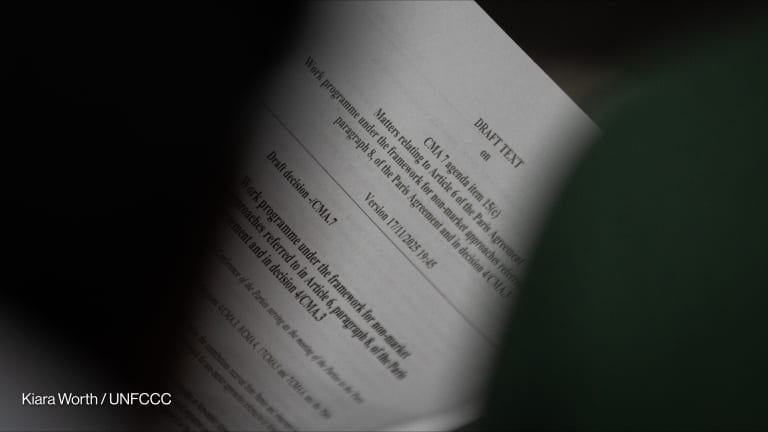
EDITOR’S NOTE: The U.N. high-level report on the post-2015 framework reflects an evolution on global development thinking that departs substantially from the MDGs, writes Terra Lawson-Remer, Fellow for Civil Society, Markets and Democracy at the Council on Foreign Relations.
Last week the U.N. High-Level Panel on the Post-2015 Development Agenda released its long anticipated report: A New Global Partnership: Eradicate Poverty and Transform Economies Through Sustainable Development. I’ve finally had time to give the long report a good read. It is an aspirational manifesto, reflecting a “new mainstream” in development thinking that departs substantially from the development thinking of the 80s, 90s or even the 2000s.
The HLP focuses on some critical issues that have too long been sidelined: governance and rule of law, inequality and social and economic exclusion, and sustainability (especially climate change) to advance shared opportunity within and across generations. The report also recognizes the central role played by global economic rules, rather than aid flows, in creating opportunity or perpetuating poverty and exclusion. This attention to the local impact of global rules is similarly the starting point of my ongoing CFR series on poverty, inequality, and global economic governance.
Below I’ve highlighted some key quotes for each the five major themes identified by the HLP.
1. Leave no one behind. “We should ensure that no person — regardless of ethnicity, gender, geography, disability, race or other status — is denied universal human rights and basic economic opportunities. We should design goals that focus on reaching excluded groups, for example by making sure we track progress at all levels of income, and by providing social protection to help people build resilience to life’s uncertainties.”
2. Put sustainable development at the core. “We must act now to halt the alarming pace of climate change and environmental degradation, which pose unprecedented threats to humanity. We must bring about more social inclusion. This is a universal challenge, for every country and every person on earth […] Developed countries have a special role to play, fostering new technologies and making the fastest progress in reducing unsustainable consumption.”
3. Transform economies for jobs and inclusive growth. “This is a challenge for every country on earth: to ensure good job possibilities while moving to the sustainable patterns of work and life that will be necessary in a world of limited natural resources. We should ensure that everyone has what they need to grow and prosper, including access to quality education and skills, healthcare, clean water, electricity, telecommunications and transport.”
4. Build peace and effective, open and accountable institutions for all. “Freedom from fear, conflict and violence is the most fundamental human right, and the essential foundation for building peaceful and prosperous societies […] We are calling for a fundamental shift–to recognize peace and good governance as core elements of wellbeing, not optional extras. This is a universal agenda, for all countries.”
5. Forge a new global partnership. “Perhaps the most important transformative shift is towards a new spirit of solidarity, cooperation, and mutual accountability that must underpin the post-2015 agenda […] It is time for the international community to use new ways of working, to go beyond an aid agenda and put its own house in order: to implement a swift reduction in corruption, illicit financial flows, money-laundering, tax evasion, and hidden ownership of assets. We must fight climate change, champion free and fair trade, technology innovation, transfer and diffusion, and promote financial stability.”
Three things are most notable, in my view. First, the recognition that a rising tide does not necessarily raise all boats, so a clear commitment to combating inequality and advancing social and economic inclusion must be at the core of the global development agenda. Second, the realization that current economic growth trajectories in developed countries are wreaking havoc on the environment, undermining the patrimony of future generations, and imposing distributional consequences that disproportionately impact the most vulnerable, so sustainability must be moved to the core of growth and development approaches. And third, a strong embrace of an agenda that puts governance, rule of law, and human rights at the center — both as an ends and as a means.
It’s a rich and interesting report, not least for the way it reflects an evolution on global development thinking. These are just the highlights; stay tuned for more detailed analysis in the coming weeks.
Edited for style and republished with permission from the Council on Foreign Relations. Read the original article.








